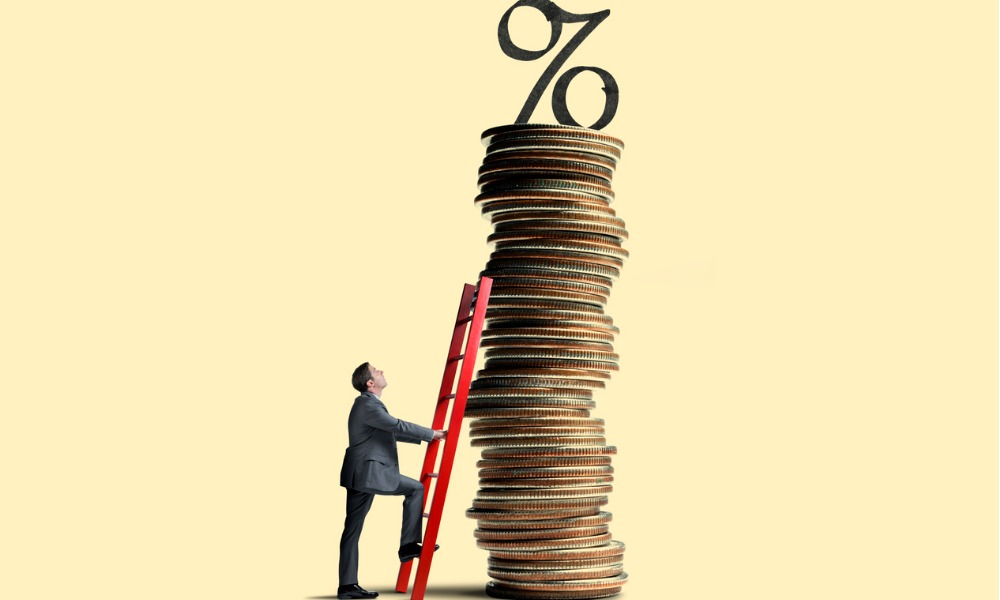Brokers stoic in response to decade-high rate increase

Mortgage experts across the US have given their first impressions on the Federal Reserve’s decision to raise interest rates to the highest level in two decades.
The Fed increased its benchmark rate by half a percentage point on Wednesday in response to ballooning inflation, marking the biggest increase since 2000.
The 0.5% rise, which followed a 0.25 percentage point increase in March, had been expected after Fed chairman Jerome Powell stressed the need to reduce 40-year high inflation, which currently stands at 8.5%.
Powell indicated that multiple 50-basis point rate hikes would likely follow – totaling seven this year, reportedly, and reaching 2.9% by early 2023 - although he downplayed more aggressive rises, such as 75 basis points at a time, saying it “is not something the committee is actively considering”.
Read more: The "new normal" – Doug Duncan’s mortgage industry outlook
In a statement, Holden Lewis, home and mortgage specialist at NerdWallet, pointed out that mortgage rates “already had gone up in anticipation of this and future rate increases” but recognized that they “might keep going up”.
He said: “In early April, many borrowers could get a 5% rate on their 30-year loans, and now they’re more likely to get a rate of 5.5%. On a $400,000 mortgage, a half-point rate increase would yield a monthly payment of $124 more.”
He advised consumers to lock in their mortgage rate “as soon as they can after their offer on a home is accepted” as higher mortgage rates reduce affordability.
He also warned that home sellers may no longer count on attracting multiple offers and so “should avoid setting a too-high asking price”.
Whitney Bulbrook, president of Carolina Ventures Mortgage in North Carolina, said she did not foresee a slowdown in the local housing market because demand for homes was still outstripping supply.
She said: “Even with higher interest rates, home offers are still considerably over listing prices.
“I do not foresee rates increasing much above where they are presently, as those expected rate increases have already been priced into lenders’ rate offerings. This biggest impact of upward rate movement is for applicants who were on the edge of qualifying for financing. Those homebuyers need to re-examine either their price point and/or down payment or consider an adjustable-rate mortgage.”
Melissa Cohn, regional vice president at real estate specialist William Raveis Mortgage, expressed optimism, saying the market had expected the 0.50-point hike. “While mortgage rates may still go higher, Powell’s remarks and the rally in stocks bodes well for the real estate market,” she said. “With inventory still well below the demand from homebuyers, the market will keep on chugging along.”
Read more: Fed interest rate hike – reaction pours in
However, according to Professor David Blanchflower, who sat on the Bank of England’s monetary policy committee between 2006 and 2009, increasing rates further would be an “error”, claiming that a number of countries, including the US, were already in recession.
Speaking on a BBC radio show, Prof Blanchflower pointed at the 2008 financial crisis as a similar example. “In August 2008 we had exactly the same arguments - oil prices were high, inflation was high. And what happened in the months following? Inflation started to plummet. History suggests that those who argue that inflation is embedded are completely wrong,” he said, adding that there was no evidence the situation was the same as in the 1970s.
“These are shocks, but these shocks will actually start to dissipate, and inflation will come down as it always has done.”
Kirk Tatom, president of Tatom Lending, however disagreed with that assessment. “Mr. Blanchflower is correct in that this will only exacerbate a recession. However, there’s no other way out.
“In short, inflation is too much money chasing too few goods. The only way to stop runaway inflation is to take money off the table or out of the system. We have to slow the velocity of money, or the dollar is going to be worthless. That is far worse than any recession. Hyperinflation is something no-one wants to see. It’s better to take a whipping now than crash the whole system later.”



